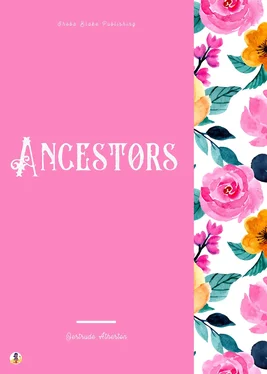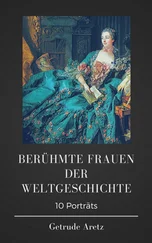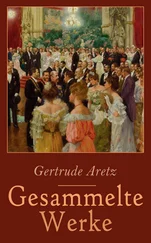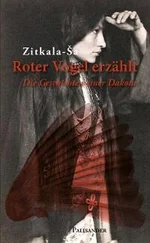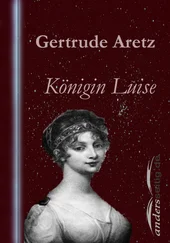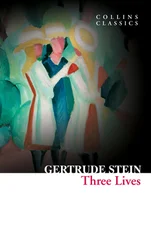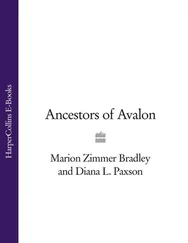Gertrude Atherton - Ancestors
Здесь есть возможность читать онлайн «Gertrude Atherton - Ancestors» — ознакомительный отрывок электронной книги совершенно бесплатно, а после прочтения отрывка купить полную версию. В некоторых случаях можно слушать аудио, скачать через торрент в формате fb2 и присутствует краткое содержание. Жанр: unrecognised, на английском языке. Описание произведения, (предисловие) а так же отзывы посетителей доступны на портале библиотеки ЛибКат.
- Название:Ancestors
- Автор:
- Жанр:
- Год:неизвестен
- ISBN:нет данных
- Рейтинг книги:3 / 5. Голосов: 1
-
Избранное:Добавить в избранное
- Отзывы:
-
Ваша оценка:
- 60
- 1
- 2
- 3
- 4
- 5
Ancestors: краткое содержание, описание и аннотация
Предлагаем к чтению аннотацию, описание, краткое содержание или предисловие (зависит от того, что написал сам автор книги «Ancestors»). Если вы не нашли необходимую информацию о книге — напишите в комментариях, мы постараемся отыскать её.
Ancestors — читать онлайн ознакомительный отрывок
Ниже представлен текст книги, разбитый по страницам. Система сохранения места последней прочитанной страницы, позволяет с удобством читать онлайн бесплатно книгу «Ancestors», без необходимости каждый раз заново искать на чём Вы остановились. Поставьте закладку, и сможете в любой момент перейти на страницу, на которой закончили чтение.
Интервал:
Закладка:
Gertrude Atherton
Ancestors
First published by Sheba Blake Publishing Corp. 2021
Copyright © 2021 by Gertrude Atherton
All rights reserved. No part of this publication may be reproduced, stored or transmitted in any form or by any means, electronic, mechanical, photocopying, recording, scanning, or otherwise without written permission from the publisher. It is illegal to copy this book, post it to a website, or distribute it by any other means without permission.
This novel is entirely a work of fiction. The names, characters and incidents portrayed in it are the work of the author's imagination. Any resemblance to actual persons, living or dead, events or localities is entirely coincidental.
Gertrude Atherton asserts the moral right to be identified as the author of this work.
Sheba Blake Publishing Corp.
2288 Crossrail Dr
Atlanta, GA 30349
support@shebablake.com
First edition
Cover art by Sheba Blake
Editing by Sheba Blake
This book was professionally typeset on Reedsy
Find out more at reedsy.com

I

Miss Thangue, who had never seen her friend’s hand tremble among the teacups before, felt an edge on her mental appetite, stimulating after two monotonous years abroad. It was several minutes, however, before she made any effort to relieve her curiosity, for of all her patron-friends Victoria Gwynne required the most delicate touch. Flora had learned to be audacious without taking a liberty, which, indeed, was one secret of her success; but although she prided herself upon her reading of this enigma, whom even the ancestral dames of Capheaton looked down upon inspectively, she was never quite sure of her ground. She particularly wished to avoid mistakes upon the renewal of an intimacy kept alive by a fitful correspondence during her sojourn on the Continent. Quite apart from self-interest, she liked no one as well, and her curiosity was tempered by a warm sympathy and a genuine interest. It was this capacity for friendship, and her unlimited good-nature, that had saved her, penniless as she was, from the ignominious footing of the social parasite. The daughter of a clergyman in a Yorkshire village, and the playmate in childhood of the little girls of the castle near by, she had realized early in life that although pretty and well-bred, she was not yet sufficiently dowered by either nature or fortune to hope for a brilliant marriage; and she detested poverty. Upon her father’s death she must earn her bread, and, reasoning that self-support was merely the marketing of one’s essential commodity, and as her plump and indolent body was disinclined to privations of any sort, she elected the rôle of useful friend to fashionable and luxurious women. It was not an exalted niche to fill in life, but at least she had learned to fill it to perfection, and her ambitions were modest. Moreover, a certain integrity of character and girlish enthusiasm had saved her from the more corrosive properties of her anomalous position, and she was not only clever enough to be frankly useful without servility, but she had become so indispensable to certain of her friends, that although still blooming in her early forties, she would no more have deserted them for a mere husband than she would have renounced her comfortable and varied existence for the no less varied uncertainties of matrimony.
It was not often that a kindly fate had overlooked her for so long a period as two years, and when she had accepted the invitation of one of the old castle playmates to visit her in Florence, it had been with a lively anticipation that made dismay the more poignant in the face of hypochondria. Nevertheless, realizing her debt to this first of her patrons, and with much of her old affection revived, she wandered from one capital and specialist to the next, until death gave her liberty. She was not unrewarded, but the legacy inspired her with no desire for an establishment beyond her room at the Club in Dover Street, the companionship of friends not too exacting, the agreeable sense of indispensableness, and a certain splendor of environment which gave a warmth and color to life; and which she could not have commanded had she set up in middle years as an independent spinster of limited income. She had received many impatient letters while abroad, to which she had replied with fluent affection and picturesque gossip, never losing touch for a moment. When release came she had hastened home to book herself for the house-parties, and with Victoria Gwynne, although one of the least opulent of her friends, first on the list. She had had several correspondents as ardent as herself, and there was little gossip of the more intimate sort that had not reached her sooner or later, but she found subtle changes in Victoria for which she could not as yet account. She had now been at Capheaton and alone with her friend for three days, but there had been a stress of duties for both, and the hostess had never been more silent. To-day, as she seemed even less inclined to conversation, although manifestly nervous, Miss Thangue merely drank her tea with an air of being too comfortable and happy in England and Capheaton for intellectual effort, and patiently waited for a cue or an inspiration. But although she too kept silence, memory and imagination held rendezvous in her circumspect brain, and she stole more than one furtive glance at her companion.
Lady Victoria Gwynne, one of the tallest women of her time and still one of the handsomest, had been extolled all her life for that fusion of the romantic and the aristocratic ideals that so rarely find each other in the same shell; and loved by a few. Her round slender figure, supple with exercise and ignorant of disease, her black hair and eyes, the utter absence of color in her smooth Orientally white skin, the mouth, full at the middle and curving sharply upward at the corners, and the irregular yet delicate nose that seemed presented as an afterthought to save that brilliant and subtle face from classic severity, made her look—for the most part—as if fashioned for the picture-gallery or the poem, rather than for the commonplaces of life. Always one of those Englishwomen that let their energy be felt rather than expressed, for she made no effort in conversation whatever, her once mobile face had of late years, without aging, composed itself into a sort of illuminated mask. As far as possible removed from that other ideal, the British Matron, and still suggesting an untamed something in the complex centres of her character, she yet looked so aloof, so monumental, that she had recently been painted by a great artist for a world exhibition, as an illustration of what centuries of breeding and selection had done for the noblewomen of England.
Some years before, a subtle Frenchman had expressed her in such a fashion that while many vowed he had given to the world an epitome of romantic youth, others remarked cynically that his handsome subject looked as if about to seat herself on the corner of the table and smoke a cigarette. The American artist, although habitually cruel to his patrons, had, after triumphantly transferring the type to the canvas, drawn to the surface only so much of the soul of the woman as all that ran might admire. If there was a hint of bitterness in the lower part of the face, from the eyes there looked an indomitable courage and much sweetness. Only in the carnage of the head, the tilt of the chin, was the insolence expressed that had made her many enemies.
Читать дальшеИнтервал:
Закладка:
Похожие книги на «Ancestors»
Представляем Вашему вниманию похожие книги на «Ancestors» списком для выбора. Мы отобрали схожую по названию и смыслу литературу в надежде предоставить читателям больше вариантов отыскать новые, интересные, ещё непрочитанные произведения.
Обсуждение, отзывы о книге «Ancestors» и просто собственные мнения читателей. Оставьте ваши комментарии, напишите, что Вы думаете о произведении, его смысле или главных героях. Укажите что конкретно понравилось, а что нет, и почему Вы так считаете.
